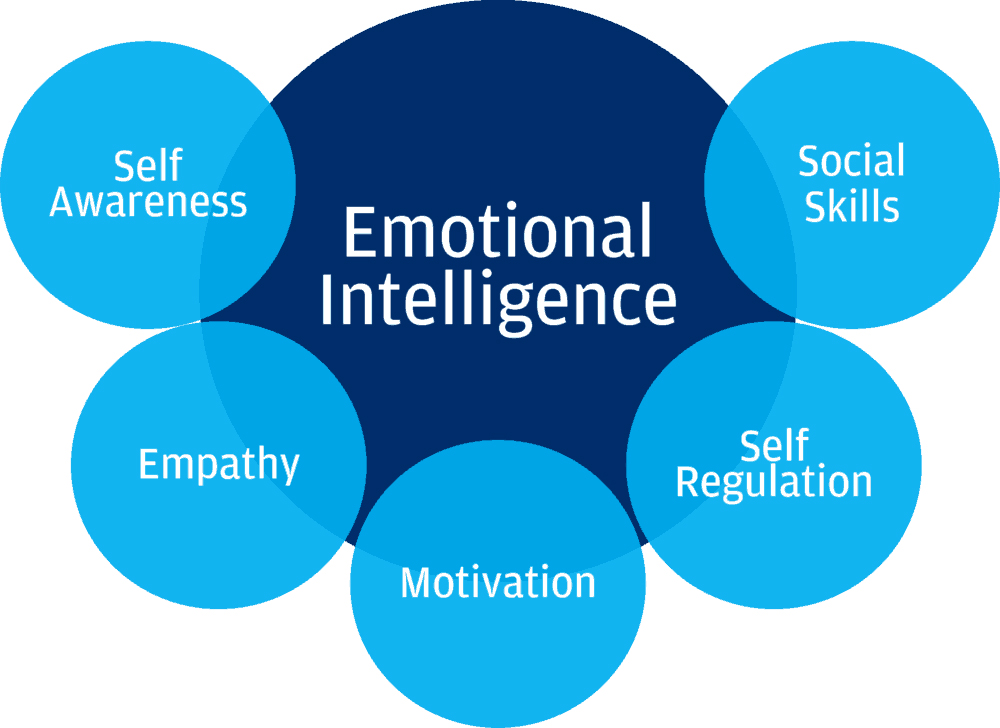Do you have a knack for connecting with people? Emotional intelligence is the ability to identify and understand emotions — both your own and the emotions of others.
Research has shown that this is a rare and valuable asset. Emotional intelligence can help you build and strengthen relationships, defuse conflict, and improve overall job satisfaction.
Psychology experts say that if you use these 13 phrases every day without even thinking about it, you have higher emotional intelligence than most people:
1. “Could you tell me more about that?”
People who lack self-awareness only care about their own thoughts and opinions. But emotionally intelligent people are interested in how others feel and what they have to say.
Communicate in a way that encourages people to talk about their feelings and experiences, and use their responses as a learning opportunity.
2. “I hear you.”
By telling someone that you understand them, you set up a cooperative environment perfect for team-building.
Other similar phrases like “I see what you mean” and “I get what you’re driving at” signal that you’re truly listening and opens up the lines of communication.
3. “I understand what you’re saying, but…”
This phrase highlights another important aspect of emotional intelligence: the ability to act diplomatically when dealing with difficult people and situations.
If you disagree with someone, express it in a tactful, non-confrontational way. The goal is to make it easier to arrive at a mutually agreeable solution.
4. “How do you feel about that?”
To make people feel acknowledged and respected, pay attention and take time to understand and empathize with them. As you listen, make an effort to put yourself in their shoes in a meaningful way.
5. “I’m not sure what’s wrong. Could you explain the problem?”
With this phrase, you know that someone is having an issue, and instead of reacting negatively, you invite them to share their thoughts.
Similar alternatives: “Can you clarify that for me?” or “What I’m hearing from you is that [X]. Is that right?”
6. “What do you mean?”
When you ask someone for clarification, you are asking them to say something in a different way or provide more information so that you understand them better. This is different from asking a person to repeat something.
7. “Great job!”
Showing appreciation goes a long way. It acknowledges other people’s efforts and accomplishments.
When you compliment someone, you immediately set up a positive vibe. Saying “I appreciate you” makes others appreciate you more.
8. “You both have good points. Let’s see how we can work together.”
This phrase can help you diplomatically work through trouble spots by acknowledging differing points of views.
Once you’ve encouraged everyone to share their concerns, you can more easily solve a potential problem. Studies show that the ability to resolve conflicts is a trademark of emotional intelligence.
9. “I’d love your input on this.”
This phrase, and similar ones like “Can I get some advice from you?” or “Do you mind if I ask for some input?”, are golden.
You’re allowing someone else to feel proud of themselves, which makes them think very positively about you.
10. “This situation makes me worried [or confused or upset].”
When there is a problem, emotionally intelligent people don’t focus on the person who created it, but on the overall situation.
This way, you’re not blaming someone or putting them on the defensive side. Instead, you’re explaining how you feel about what happened, which helps you avoid sounding passive-aggressive or antagonistic.
11. “I feel this way about…”
When you’re emotionally intelligent, you connect with your emotions as they happen, in the moment.
This type of self-awareness allows you to better share your own emotions and impressions with other people, which both makes them feel closer to you and encourages them to do the same.
12. “I’m sorry.”
Having a healthy dose of humility is common among people with high emotional intelligence. Don’t be afraid to say “I’m sorry.” When you make a mistake, admit it and genuinely apologize to whomever deserves it.
13. “Thank you!”
Don’t forget those “magic words” you were taught when you were a kid. “Please,” “thank you” and “you’re welcome” are always appreciated.
Common courtesy is, sadly, not that common these days, according to studies. Being polite isn’t only a mark of high emotional intelligence, it’s also a way of showing respect for others, which makes them regard you more highly.





